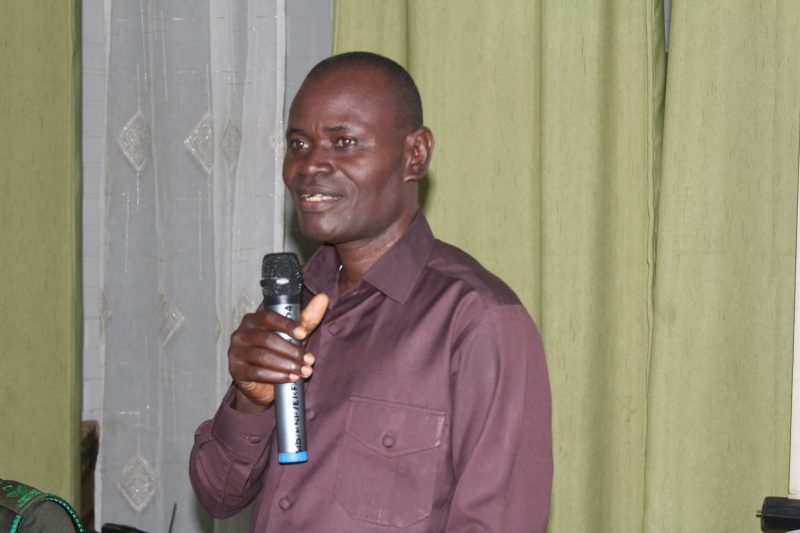
By: Johannes Jafo Akunatu [0247019099; akjafo@gmail.com]*
Due to escalating administrative tensions, insiders are requesting the transfer of essential staff and the establishment of a new institutional respect, as the leadership of Hon. Castro is met with silent resistance in the West Gonja Municipal Assembly.
In the political circles of the Savannah Region, the tension within the West Gonja Municipal Assembly has been quietly but very much powerfully the subject of public debate and public concern. The official smiles do not mask it completely: the lack of basic unity between the administrative staff and the chief government appointee has reached a point where it threatens to bring an end to the effective governance in the district. At the center of the dispute is the Hon. Yakubu Yussif, better known as Hon. Castro, the Municipal Chief Executive (MCE) of West Gonja.
Hon. Castro’s humility, conduct, and commitment to service have always been the qualities that set the standard for others. He is a teacher by profession who has decided to dedicate a good number of years in the classroom, educating and influencing the youth alongside his political activism. His political career is not of privilege but is rather one of sacrifice—a life totally committed to the cause. His allegiance to the NDC party have won him respect among all parties and social groups. His shortcomings, however, are the very system that is supposed to back him which is silently eroding his power.
Various sources report that some key administrative staff have changed from being facilitators to becoming the main hurdles in the way of progress. As per the insiders, the attitudes of some senior staff in the municipal assembly has resulted in a workplace fraught with tension, filled with red tape, and running on mistrust. Something which the Assembly’s smooth functioning directly depends on. Thus, there are delays in the taking of decisions. It is very hard for even the best leader to perform in such a weak administrative atmosphere.
Teamwork is the backbone of local governance. Every Municipal Chief Executive depends on the combined powers of political authority and administrative machinery to make the vision come true. When that collaboration ceases, disorder comes in the place of order. If it is the officers within the Assembly, those who have been given key operational duties, who are not in tune with the MCE’s agenda or are deliberately frustrating his mandate, they not only weaken his office but also betray the trust of the people who expect the government to be effective.
The municipality would be rejuvenated by a new team whose core values are commitment to cooperation, transparency, and efficiency. The demand for the transfer of these senior officers is not an elimination of political adversaries but rather an insistence on the reasonableness of the administration. The MCE should receive a support structure that is aligned with his vision, not one that secretly undermines it. It is a futile exercise to facilitate advancement when the bureaucracy’s drives have been impeded by internal resistance.
What is even more alarming is the trend of public disrespect towards Hon. Castro that is becoming more common. He has been almost completely obscured during significant events that were even within his jurisdiction. The MCE, who is the local representative of the President of the Republic, was not even assigned a seat among the dignitaries but stood there as an ordinary attendee like a mere spectator at the Yagbonwura Damba Festival. The same situation occurred during the recent inauguration of the Damongo Prison when the MCE was again met with lack of seating and acknowledgment of his status.
The way in which he is treated is not only an insult to the person but also a disrespect to the office and to the very basis of local governance. The MCE’s office is the very place where the president’s power is felt in the district. It is the very government that has publicly undermined its core structure. This setting of a bad example is a slow but sure way of killing the respect that public servants have for their institutions and thus drawing chaos into governance.
In governance, the relationship of mutual respect is not a privilege but an obligation. It sustains the power structure, leads to orderly interaction among officials, and is a practice that gives respect to positions. All those who are appointed, no matter how lowly they are or how high their offices are, should realize that the MCE’s office is a constitutional office. Therefore, Hon. Castro must exercise his power with self-assurance and also be very firm about it. Moreover, he must have the best assistants around him—an active and very capable secretary, an astute administrative assistant, and very competent public relations officers who are good at managing communication, logistics, and protocol. It is usually the quality of the people around a leader that determines his strength.
The time has arrived for Hon. Castro to regain the power that the law has given to him. He should be the one to lead, and be ready to do it strongly, without fear, and with perfect clarity that disobedience or the acts of undermining from within will no longer be the case. In order for the whole system to function, there has to be mutual respect between the management and the workers. Transfer of staff should not be viewed as punishment but as a rebalancing process—professionals who are in the wrong place will be moved to the right place and trust will be created in the Assembly again.
The citizens of West Gonja are entitled to an administration that is functional, respectful and united. One that shows the strength of the leaders and the integrity of their cause. Hon. Castro’s idea of development cannot take place if the atmosphere is one of discord and silent resistance. It is time to remove the obstacles to progress.
The best leadership earns respect not by means of power but rather through its presence and that presence has to be supported by the surrounding system. When the authority of the MCE is recognized, then governance is easy, development is fast, and the Municipality is positioned as the best example of coordination and respect among the local authorities.
Ultimately, the West Gonja narrative should not be one of discord but rather one of transformation. The request for transfers is not to wipe out the staff, it is to eliminate the hurdles in the way. It is to allow the MCE the necessary latitude to govern fearlessly and produce significant results. The reason being, once respect is reestablished, progress becomes inexorable.
Disclaimer:
The perspective and ideas articulated in this editorial belong exclusively to the writer, and probably do not coincide with the official stance or policy of any political party, government body, or institution. The author relies on observations and information which were accessible at the time of writing, and claims were made only to encourage discussion and thereby hold public service accountable. and public service accountability.









